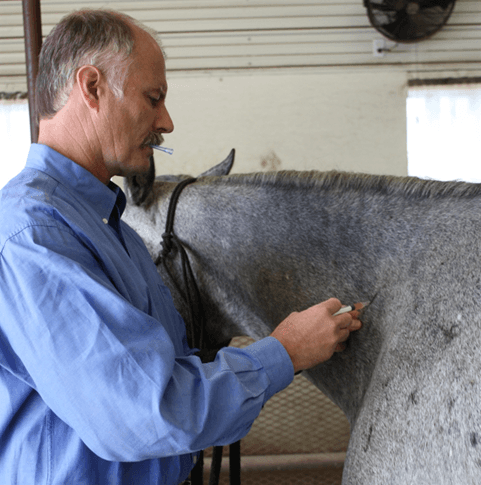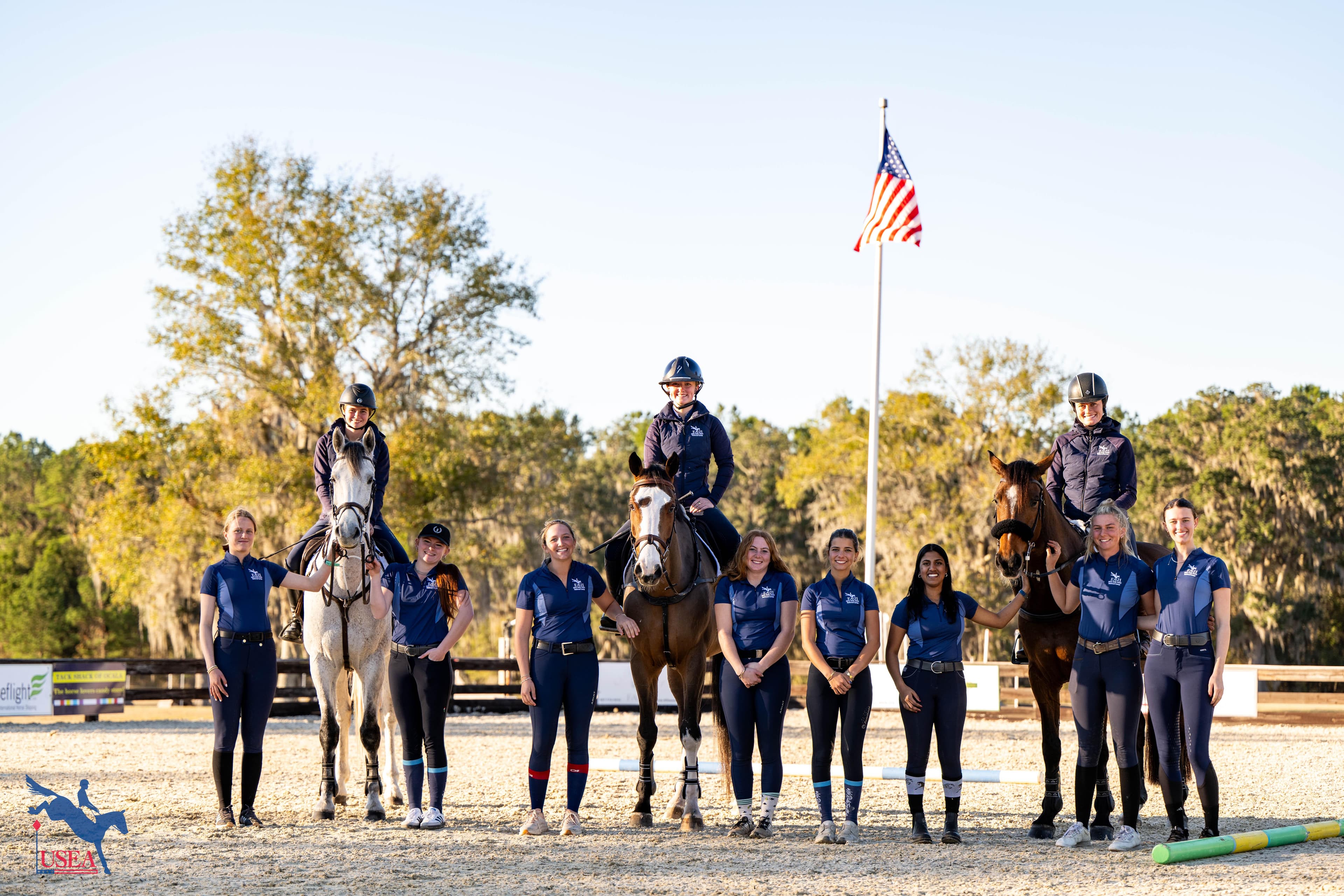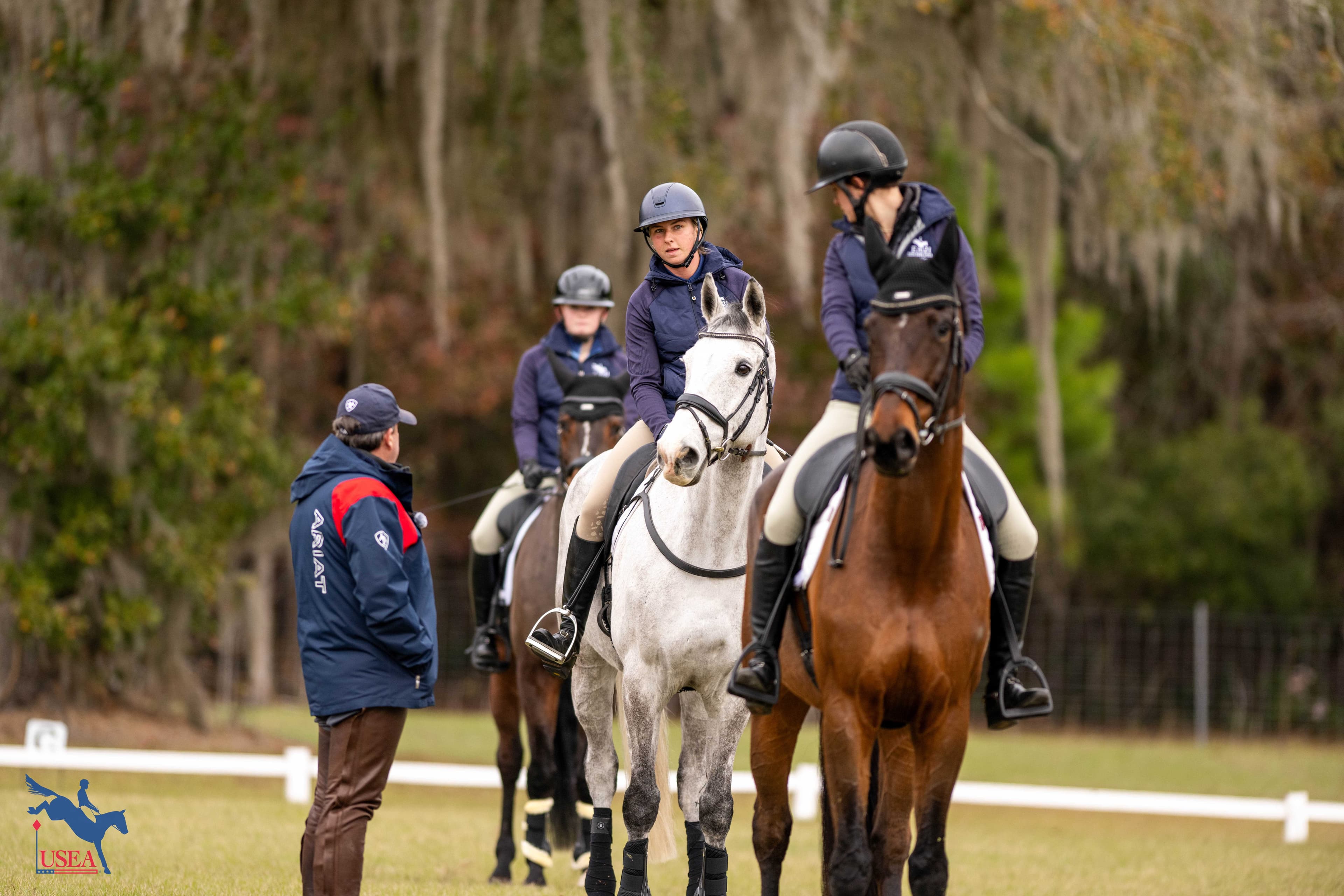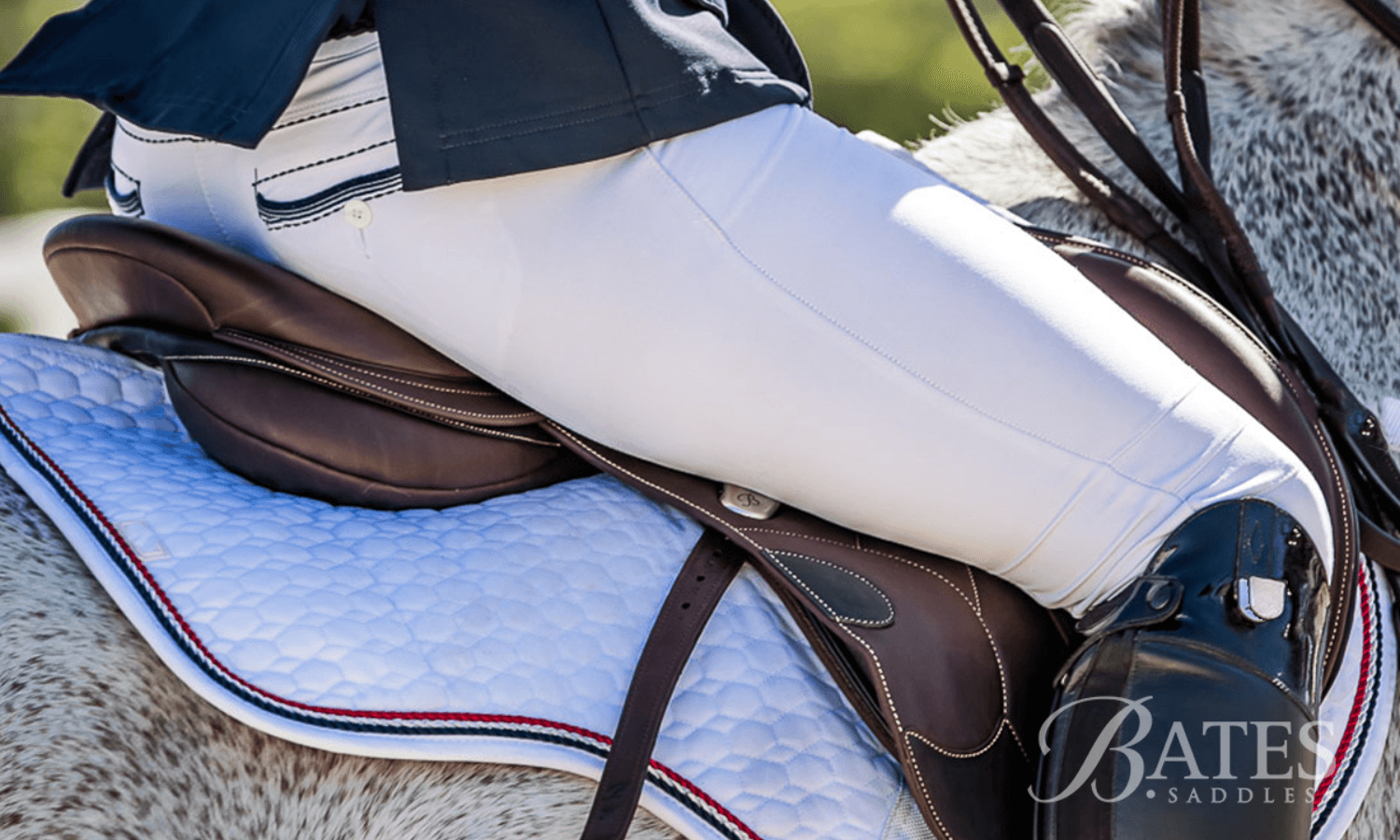The Remarkable Work of Vaccination

Your horse’s immune system does extraordinary and complex work, but even this intricate defense mechanism can’t go it alone. Vaccination has proven to be an extremely effective and safe way to provide a targeted boost to the immune system to help safeguard horses against deadly infectious diseases.
Preventing disease through proper vaccination is far safer, easier and more economical than treating the disease after the horse is already sick. Many diseases that horses encounter are preventable and vaccination is solid insurance, not to mention an important biosecurity measure to help prevent mass outbreak of disease. In addition, some diseases such as rabies carry zoonotic risk (meaning they can be passed between animals and humans), requiring us to remain diligent with vaccination. In fact, many of the equine diseases we vaccinate against are deadly and treatment after the disease is present may often be unsuccessful.
Veterinarians recommend that all horses receive some combination of vaccines every year. These recommendations are based on the American Association of Equine Practitioner’s (AAEP) core and risk-based vaccination guidelines.
The following are considered “core” vaccinations because they protect from diseases that are endemic to a region, those with potential public health significance, required by law, virulent/highly infectious, and/or those posing a risk of severe disease[1] or death.
- Eastern equine encephalomyelitis (EEE)/western equine encephalomyelitis (WEE)
- Rabies
- West Nile virus (WNV)
- Tetanus
In addition to the core vaccines that every horse should receive, risk-based vaccination protocols vary according to your horse’s specific needs, and should be directed by a veterinarian. Considerations include the horse’s age, environment, use, risk of exposure to infectious agents, and geographic location the horse lives in or may travel to. Risk-based vaccines include:
- Equine Herpesvirus (EHV)
- Equine Influenza Virus (EIV)
- Strangles (Streptococcus equi)
- Potomac Horse Fever (PHF)
- Equine Viral Arteritis (EVA)
- Rotavirus
- Anthrax
- Botulism
Horses that travel and are in competition are particularly susceptible to infectious disease. They encounter many horses and environments, and often are immunocompromised (immune system cannot respond appropriately) due to the stress of travel, training and competing.
If you own more than one horse, it’s important that all horses be included in your vaccination program. Just a single unprotected horse in a herd can serve as a reservoir of infection to others. Devastating diseases such as WNV and EEE/WEE are not discerning – any horse exposed to infected mosquitoes is susceptible. Particularly susceptible are those horses that are not vaccinated or have weakened immune systems.
Importance of Veterinarian-Directed Vaccination
Your veterinarian is critical in designing an appropriate vaccination program for your horses and your ranch. He or she understands the individual needs of your horse(s), as well as endemic and regional disease considerations and need for vaccination. Your veterinarian is also equipped to handle a vaccine reaction, in the rare event one should occur.
Vaccination Plus Biosecurity is Best
With highly contagious diseases such as equine herpesvirus, influenza and strangles, vaccination alone will not prevent disease transmission. You can provide your horses with a broader net of protection by employing sound biosecurity measures.
Consult with your veterinarian to ensure your horse’s vaccinations are up to date. Notify your veterinarian immediately if you suspect an infectious disease in your horse, as many infectious diseases are reportable.
The following biosecurity measures will help ensure your roping plans aren’t derailed by a potentially life threatening infectious disease.
When you’re away from home:
- Minimize nose-to-nose contact with other horses
- Don’t share items, including lead lines, halters, water buckets, tubes of oral medications
- Monitor your horse’s temperature twice daily; get to know your horse’s “normal” temperature
- Clean tack, equipment and stalls regularly
- Practice good hand hygiene (hand sanitizers work in the absence of soap and water)
When you’re at home:
- Separate and monitor horses after returning home
- New horses to the ranch should be isolated and monitored twice daily for fevers and signs of infectious disease
- Include all horses in your vaccination program. Just a single unprotected horse in a herd can serve as a reservoir of infection to others.
- Practice good hygiene and cleanliness
Infectious Disease and Biosecurity Resources
There are several resources available to help monitor and manage infectious disease, as well as provide valuable biosecurity tips.
- The Equine Disease Communication Center (EDCC), equinediseasecc.org, provides infectious disease outbreak information to the horse industry in North America.
- American Association of Equine Practitioners (AAEP) infectious disease guidelines (www.aaep.org), providing guidance on respiratory, gastrointestinal, neurologic and vesicular infectious disease control.
- United States Animal Health Association (www.usaha.org), through its Infectious Disease of Horses Committee (IDOHC) provides information on testing procedures, risk assessment, quarantine protocol, as well as a guidance document on the neurologic form of equine herpesvirus.
- Equine Biosecurity Risk Calculator – a self-quiz for horse owners provided by the University of Guelph (www.equineguelph.ca). A unique tool geared to the horse owner, and developed in partnership with Colorado State University and the AAEP.
- Biosecurity Toolkit for Equine Events, California Department of Food & Agriculture (www.cdfa.ca.gov).
Take Home Message
Still uncertain about vaccination? Talk with your veterinarian. Equine infectious disease can strike suddenly and be devastating to your horse – and others. Vaccination is proven to be one of the safest and most reliable life-saving measures you can take for your horse. Get the facts on vaccination to help ensure a lifetime of health for your horse.
About The Author
Dr. Duane Chappell received his doctorate of veterinary medicine from Purdue University. He joined the Merck Animal Health equine veterinary technical services team in 2014. Chappell began practicing in the Midwest at mixed animal clinics. Throughout his career, Chappell has owned and managed solo and group mixed animal practices, and was a resident veterinarian at Richland Ranch Quarter Horse breeding farm. Chappell was most recently an assistant professor at Morehead State University in Kentucky.
Copyright © 2017 Intervet Inc., d/b/a Merck Animal Health, a subsidiary of Merck & Co., Inc.
[1] American Veterinary Medical Association. AAEP Vaccination Guidelines (www.aaep.org)














